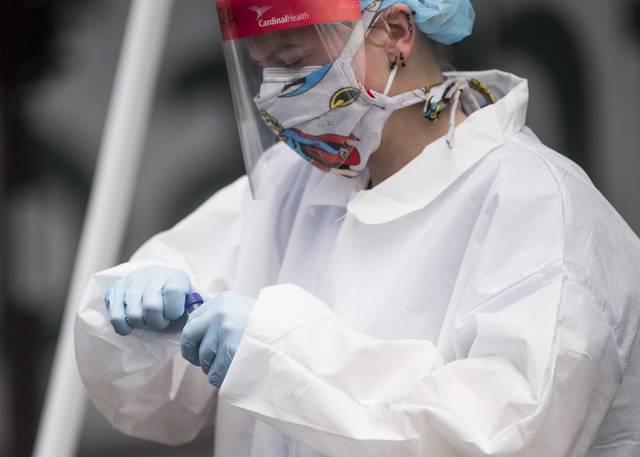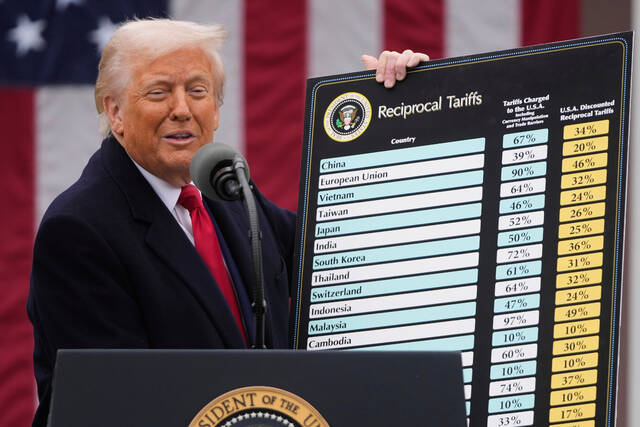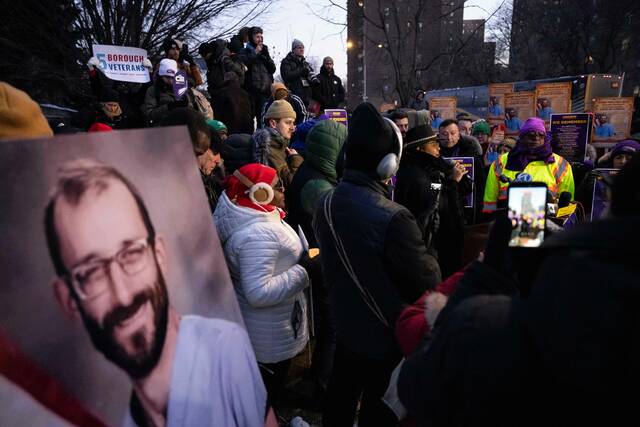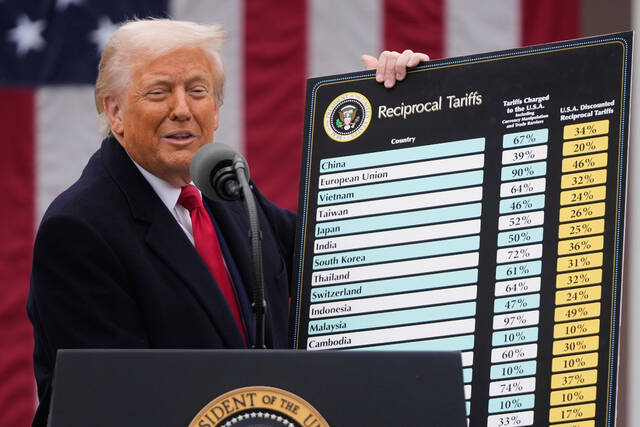In the current covid-19 pandemic, the first goal is to get control of the virus. This can be achieved with masks, handwashing and limiting contact with others. When these measures are implemented effectively, people can get back to work and school. Once spread is contained, smaller outbreaks can be controlled with case investigation and contract tracing, accompanied by isolation and quarantine.
These are traditional public health strategies. They have worked well to suppress the pandemic quickly in countries with coordinated national efforts, such as New Zealand, China, Germany, Japan, South Korea, Vietnam and Taiwan.
For example, Germany has had 9,800 deaths among 83 million people, or 118 per million. Allegheny County, where our citizens largely comply with mask and physical distancing guidelines, and where public health officials have limited gathering size, has had just over 400 deaths among 1.2 million people, or 333 per million. By contrast, the U.S. has had over 220,000 deaths in 331 million people, or 665 per million, double that of Allegheny County and more than five times that of Germany. Clearly, we can do better.
Many people question whether these measures are worth it. The recent Great Barrington Declaration says no. It proposes restrictions on contact only for older people and others at high risk of severe disease. The remainder of the population would be free to mix at will, with no restrictions on restaurants, workplaces, schools or size of gatherings, and no face coverings. This strategy, it is claimed, will produce “natural herd immunity,” that is, widespread mild infections leading to accelerated population immunity.
Unfortunately, this approach will fail. Dropping public health suppression strategies will result in overwhelmed hospital systems and skyrocketing mortality and will not produce the desired herd immunity. Here are some reasons why.
Uncontrolled transmission in younger, healthier people risks significant morbidity and mortality across the whole population. It is impossible to prevent contact between “high risk” and “low risk” populations, especially when 30% of the population can be considered high risk (i.e., with multiple preexisting conditions).
Transmission of the disease by people who are infected and yet not showing symptoms is substantial, accounting for an estimated 30% of transmission. This asymptomatic spread is substantial and hard to detect. Our tests do not reliably detect virus in this key period. The low risk population will almost certainly infect people at higher risk.
Uncontrolled infection will continue to unequally burden the most vulnerable segments of the population, with increased mortality and hospitalization of minorities, low-income populations, essential workers, and patients who face challenges apart from the pandemic (e.g., the homeless, people with substance abuse disorders, the mentally ill).
Our one example of a national “herd immunity” strategy, Sweden, has not succeeded in lowering mortality or avoiding economic effects of the pandemic. Sweden’s mortality rate is on par with the U.S., and immunity based on antibody testing for population samples as of August 2020 was typical of other countries (high of 11.4% in Stockholm, 7.1% nationally).
We can add to this body of evidence a recent U.K. modeling effort, which assessed a range of relaxed suppression strategies and showed that none achieved herd immunity while also keeping cases below hospital capacity. This modeling effort suggests a fourfold increase in mortality among older people if only older people practice social distancing and the remainder of the population does not.
We recognize the toll of current covid-19 suppression strategies. According to the Brookings Institute, “Covid-19-related job losses wiped out 113 straight months of job growth, with total nonfarm employment falling by 20.5 million jobs in April.” A Kaiser Family Foundation survey in mid-July found that 53% of adults in the U.S. reported negative mental health effects, including difficulty sleeping (36%), increases in alcohol consumption or substance use (12%), and worsening chronic conditions because of absence of care (12%).
But the danger of the pandemic is also undeniable. The last six months have seen consistent increases in mortality compared to expected rates. According to the CDC, the need for hospital care with covid-19 infection is 5-13 times higher for people over age 65 compared to people aged 18-29. African Americans and other minorities face double the risk of death and hospitalization compared to whites. When covid-19 hospitalizations overwhelmed hospital capacity in April, many people skipped routine follow-up for preexisting conditions. The long-term morbidity of the disease is also only now becoming clear.
Proposals to “allow natural herd immunity to emerge” will not protect vulnerable populations and not end the pandemic. Social distancing and use of face coverings, with comprehensive case finding, testing, tracing, and isolation, will. These tried and true public health measures will keep viral transmission low enough for us to work and attend school while managing smaller outbreaks as they arise. We look forward to appropriate federal support and science-driven CDC guidance to support this effort.
Steven Albert, Ph.D., M.S., is professor and chair of the Department of Behavioral and Community Health Sciences in the University of Pittsburgh’s Graduate School of Public Health. This op-ed was co-authored by the graduate school’s seven chairs and interim dean.








